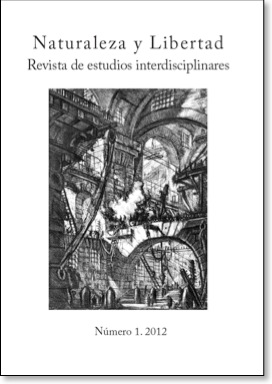La opción naturalista. Una respuesta a Francisco Soler
DOI:
https://doi.org/10.24310/nyl.v1i1.3980Keywords:
Naturalismo, evolución del conocimiento, Antonio Diéguez Lucena, Francisco Soler,Abstract
Resumen: En su revisión crítica de mi libro La evolución del conocimiento. De la mente animal a la mente humana (Madrid: Biblioteca Nueva, 2011), Francisco Soler argumenta que la epistemología naturalizada, y mi versión de ella en concreto, no logra superar el argumento antinaturalista de Alvin Plantinga. En esta réplica explico por qué considero que, pese a las dificultades que pueda presentar, el naturalismo es la única opción factible en lo que al estudio de la mente se refiere.
Palabras clave:
Abstract: In his critical review of my book La evolución del conocimiento. De la mente animal a la mente humana (Madrid: Biblioteca Nueva, 2011), Francisco Soler argues that evolutionary epistemology —and particularly my version of it— does not face properly Alvin Plantinga’s antinaturalist argument. I will try to explain why, in spite of the difficulties, naturalism is the only feasible option in the study of mind.
Key words:
Recibido: 23/10/2011. Aprobado: 17/01/2012.
Downloads
Metrics
References
Boudry, M., S. Blancke y J. Braeckman, “How Not to Attack Intelligent Design Crea¬tionism, Philosophical Misconceptions About Methodological Naturalism”, Foundations of Science, 15, 2010, págs. 227-244.
Diéguez, A., La evolución del conocimiento. De la mente animal a la mente humana, Madrid, Biblioteca Nueva, 2011.
Dilworth, C., The Metaphysics of Science, Dordrecht, Springer, 2006.
Elder, C. L., Real Natures and Familiar Objects, Cambridge, MA, The MIT Press.
Giere, R., “Naturalism”, en S. Psillos y M. Curd (eds.), The Routledge Companion to the Phi-losophy of Science, London, Routledge, 2010, págs. 213-223.
Johnson, P. E., “Response to Pennock”, Biology and Philosophy, 11 (4) 1996, págs. 561-563. (Reimpreso en R. T. Pennock (ed.) 2001, cap. 4).
Kim, J., “The Mind-Body Problem After Fifty Years”, en A. O’Hear (ed.), Current Issues in the Philosophy of Mind, Cambridge, Cambridge University Press, 1998, págs. 3-21.
McMullin, E., “Plantinga’s Defense of Special Creation”, Christian Scholar’s Review, 21 (1) 1991, págs. 55-79. (Reimpreso en R. T. Pennock (ed.) 2001, cap. 8).
Niiniluoto, I., Critical Scientific Realism, Oxford, Oxford University Press, 1999.
Pennock, R. T., “Naturalism, Evidence, and Creationism, The Case of Philip Johnson”, Bi-ology and Philosophy, 11 (4) 1996, págs. 543-549. (Reimpreso en R. T. Pennock (ed.) 2001, cap. 3).
Pennock, R. T.,, Tower of Babel. The Evidence against the New Creationism, Cambridge, MA, The MIT Press, 1999.
Pennock, R. T. (ed.), Intelligent Design Creationism and its Critics, Cambridge, MA, The MIT Press, 2001.
Plantinga, A., “Methodological Naturalism?”, en J. van der Meer (ed.) Facets of Faith and Science, vol. 1, Lanham, MD, University Press of America, 1996, págs. 177-221. (Reimpreso en versión resumida en R. T.
Pennock (ed.) 2001, cap. 13).
Plantinga, A.,, “Content and Natural Selection”, Philosophy and Phenomenological Research, 83 (2) 2011, págs. 435-458.
Downloads
Published
How to Cite
Issue
Section
License
Those authors who have publications with this journal, accept the following terms:
1. Copyright and licensing information are clearly described on the journal’s web site: all content published in Naturaleza y Libertad is open acces without limit, and are subject to the Attribution-NonCommercial-ShareAlike 4.0 International (CC BY-NC-SA 4.0) license. The full text of which can be consulted at https://creativecommons.org/licenses/by-nc-sa/4.0/
2. It is the responsibility of the authors to obtain the necessary permissions for the images that are subject to copyright. The authors whose contributions are accepted for publication in this journal will retain the non-exclusive right to use their contributions for academic, research and educational purposes, including self-archiving or deposit in open access repositories of any kind. The electronic edition of this magazine is edited by the Editorial de la University of Malaga (UmaEditorial), being necessary to cite the origin in any partial or total reproduction.
3. This journal allows and encourages authors to publish papers on their personal websites or in institutional repositories, both before and after their publication in this journal, as long as they provide bibliographic information that accredits, if applicable, your posting on it.
4. In no case will anonymous papers be published.





18.png)













